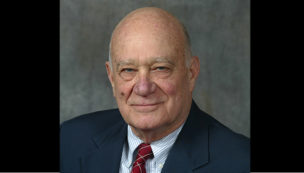Although I have been working on this column for a few days (for years, on the theme), I am restarting it today (8/5) before I submit it to my editor (reason in a moment).
I admire the marvelous work and commentaries by John Leland, especially this year’s book “Happiness Is A CHOICE You Make: Lessons from a year among the oldest old.”
One reviewer properly praised Leland’s book as “heart medicine for uncertain times, and assurance that the only resolution that matters is the will to keep going.”
To be sure, there is no chance for good things to happen unless one finds paths to engagement and stimulation, regardless of age. As I get very close to the “oldest old” (over age 85), I am increasingly mindful that our options for joys can be affected and limited by many factors.
Health is obviously a major consideration. While I know many elders (into their 90s and even beyond 100) who live creative and fulfilling lives, I also lament that good people die near the threshold of 85.
I restarted this column after I learned that my great Hofstra friend Tim Smith died yesterday. My grief was compounded because a few months ago my marvelous pal, Richard Berkenfeld, died (all of us graduated from college in 1957). Richard had a consulting office in Great Neck for decades.
My sense of joy was stunned by these losses, mindful as I am of how vulnerable we all are as we age. My resolve to continue today (and with subsequent columns on joys of aging) comes because Richard and Tim were models of people who exuded “positivity” in all that they did.
Superbly educated and highly intelligent people, they were ever mindful of challenges and deficiencies in our society. What I admired about Richard and Tim was their continuing passion for an active, civically engaged life. They put a premium on friendship and on building bonds of encouragement and support in seeking a better society nationally and globally.
All of us are who we are, not only because of what we have done, but because of the friends and relatives who shared our journeys. Close and warm friendships that have spanned years, even decades, cannot be replaced. However, their memories can be cherished as we strive to proceed in our old age by emulating their creative positivity.
My initial draft of this column invited readers to click Google for “books with joy in the title.” Twenty-two titles appear. But not one of them speaks of the joys of aging.
One expected advantage of aging is that we become less burdened by time poverty. So, with reasonable health (a key for everything), we elders have the opportunity and the time for the joys of readings (surprising that no such title was among the 22; a book prospect for one of us aging folks?).
We elders can invest our time, and expand literary explorations that were not so feasible in our earlier years. We might also find better fitness and well-being with “The Joy of Yoga?” Check out “The Chemistry of Joy.” For our pleasures and to enhance culinary delights for friends and relatives, we can consult “The Joy of Creative Cuisine.”
If we aged prior to tech revolutions, we may not need “The Joy of Missing Out: finding Balance in a Wired World.” Two Nobel Peace Prize winners provide lessons from their lives in “The Book of Joy: Lasting Happiness in a Changing World.”
“The Joy of Yiddish” can help us connect across ethnic lines. Consider beginning the day with “Joy in the Morning”
Of course, “The Joy of Sex” is the most famous and best-selling joy book of all time. If you are inclined to a historical perspective on that topic, you can check “The Joy of Sexus: Lust, Love and Longing in the Ancient World.”
Recently, someone proposed a book on “The Joy of Text,” but we can leave that to the millennial generation.
If you are inclined to contribute ideas for the “Joys of Aging,” you can send your views to Blank Press or to me.
It is the case, of course, that “Joys of Aging” will depend on the circumstances of Americans who are over age 85 (projected to be 75 million in two decades; John Leland’s group of “the oldest old”).
I will share my lists of dozens of paths to joys of aging in my next columns. But your suggestions are most cordially invited as we proceed; we could be heading for a collaborative North Shore book!
The legacies of Richard Berkenfeld and Tim Smith offer guidelines for all of us. They were always nurturing participants in “Socratic café deliberations.” A hallmark of their years was providing keen encouragement and support for improving the lives of others.



